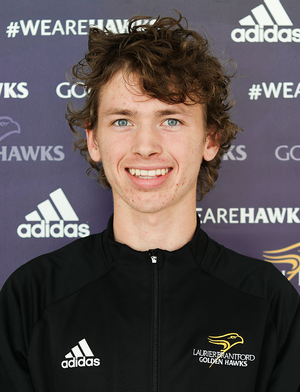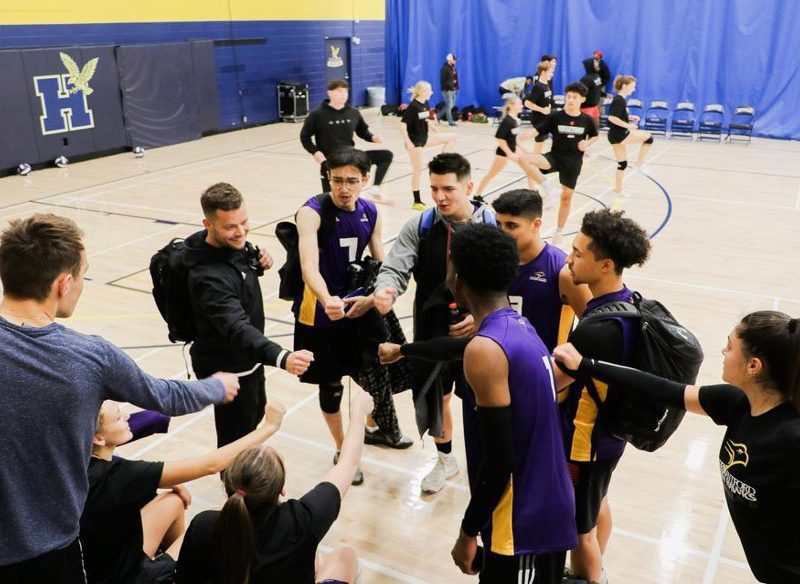Laurier Brantford was host to world-renowned investigative journalist Anas Aremeyaw Anas – and no one saw his face.
Anas spoke at several Laurier Brantford events and in some classes from January 19 to 21, concealing his identity at every single one. This is a necessity in Anas’s line of work, where he spends months undercover doing investigative reporting, and revealing his face to the public could make him a target from one of the many enemies he’s made over the years.
The Ghanaian journalist has made a name for himself in investigative reporting through working undercover, sometimes for months at a time, exposing various cases of human rights abuse in Africa. To ensure he has evidence to prosecute, Anas uses a hidden camera he keeps on his person to get footage to help verify his reports. His efforts have helped expose a corrupt mental institution, an unsafe orphanage, a group of sex traffickers and several other shady businesses. Anas explains how the process works.
“You just have to let civil society see these violations,” he says. “Those in power will be forced to act. All that I have to do is spark fear in these corrupt businesses, then they won’t know who is watching.”
Anas’s attendance at Laurier Brantford was well received. He spoke to several Journalism classes and met with the university community at a Q & A session.
Katelyn Freiter, a Laurier student who attended the lecture, was impressed with what she heard.
“It was such an honour that he came to our campus to help spread awareness,” says Freiter. “Seeing him really made me think ‘who is this man?’”
But Anas has also faced his share of criticism over the years – made evident by his wearing a mask to each Brantford event. For all the compliments he’s received from journalists, others consider his practices to be highly unethical. His use of hidden cameras, according to some, breaks fundamental codes of journalism ethics.
Hidden cameras are frowned upon by most codes of journalism, where a reporter must reveal him/herself to an interview subject and get permission from that subject before filming them. Due to the nature of his particular brand of journalism however, such a feat is an impossibility for Anas. He makes his personal views on the issue very clear.
“I invaded people’s lives so that I could save them. Yes, I have broken the ethics of journalism, but I have fixed lives. How can anyone regret that?”
Anas’s visit to Laurier Brantford was sponsored in part by the Journalism Guild and the Human Rights and Human Diversity group. Andrew Robinson, the program coordinator for the Human Rights and Human Diversity group, explains his views on Anas’s work.
“Whatever we think of his methods, his intentions strike me as good,” says Robinson. “From what I’m aware of, Anas operates under the principle of public interest. It serves the interest of all those people suffering.”
Aaron Goodman, Laurier professor and international affairs journalist, also supports Anas’ style of journalism.
“I think it’s the only way he can get the information he needs,” says Goodman. “The consequences don’t bother me in the least. If corruption and abuse is exposed, then professionally and personally, I have no problem with his methods.”
Anas has received a great deal of both praise and disdain for his journalism style.
While being cited by one online paper as “the worst Ghanaian journalist ever,” Anas has received recognition from President Barack Obama, who called him a “courageous journalist.”
For all his success and fame, Anas is humble about his achievements when addressing Laurier students and faculty.
“Really, I’m not Superman. I’m just as normal as any of you.”



